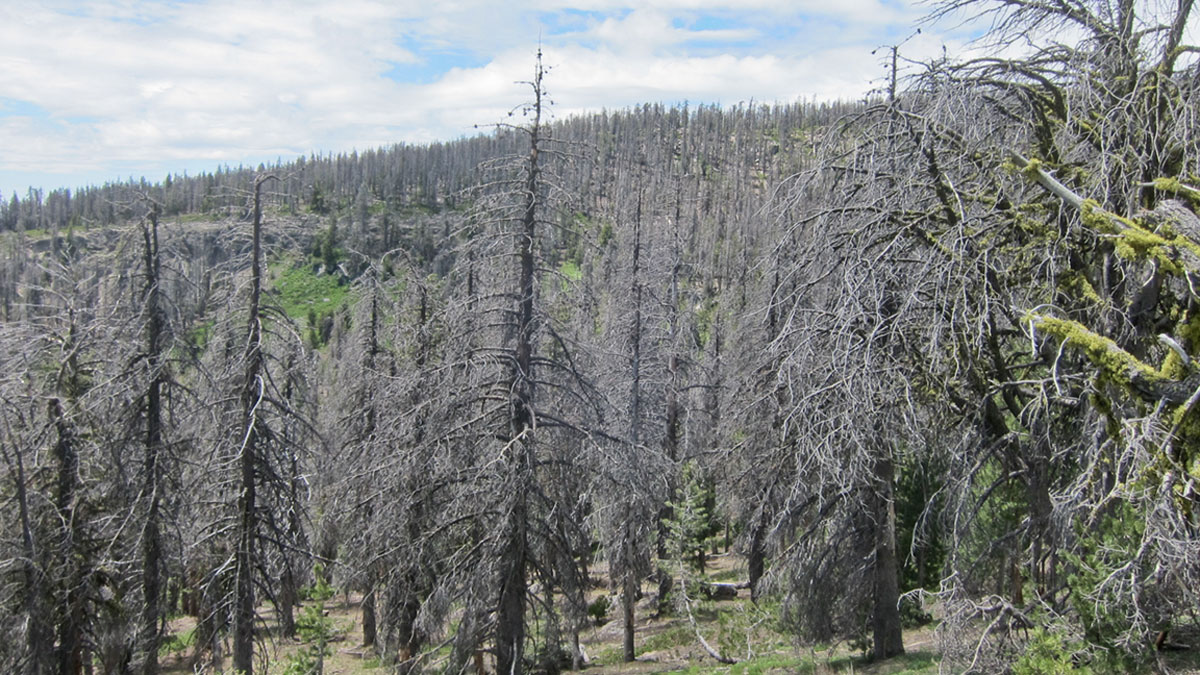A new study published by the Journal of Wildlife Management, and funded in part by the Rocky Mountain Elk Foundation, indicates elk avoid forest habitat during the summer in areas adversely impacted by bark-beetle outbreaks.
“Although it is common following forest disturbances for elk to seek out and capitalize on the resulting increases in highly palatable and nutritious forage, during the summer months, elk in our study area fairly consistently avoided beetle-kill. This result is somewhat counter to how we typically think elk respond to forest disturbances,” said Bryan G. Lamont, lead author from of the University of Wyoming. “It appears there are some subtle, but real differences between disturbances such as forest fires and the bark-beetle epidemic.”
According to phys.org, elk usually adapt well to forest fires and logging but their behavior is different when it comes to beetle-killed stands of trees. The study author maintains removing affected trees would improve overall wildlife habitat.
“Our results indicate that habitat treatments (i.e., fire or harvest) that remove standing dead trees and downed logs in beetle‐killed forest would further facilitate understory growth while reducing the locomotion costs associated with foraging in beetle‐killed forest,” Lamont stated.
(Photo source: U.S. Forest Service)
